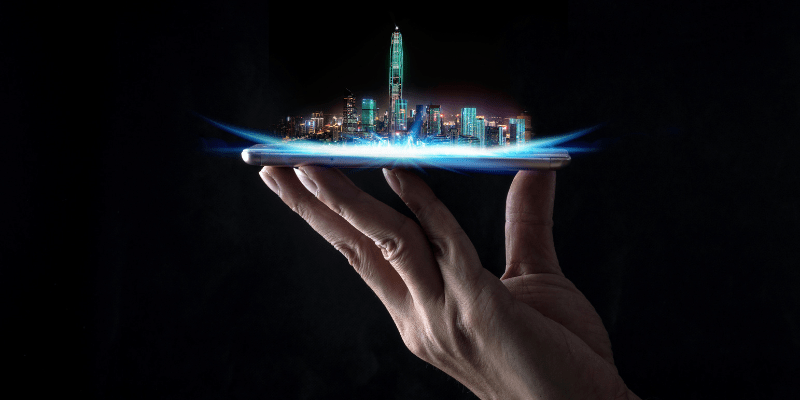The true 5G breakthrough is already driving changes in companies. The fifth generation of wireless technology has already reached 1.2 billion global connections so far and, as a result, is transforming the world as we know it: there is a new architecture of connectivity advancing, transforming industries and improving everyday experiences.
With lightning-fast speeds, incredibly low latency, and the ability to carry huge numbers of connections simultaneously, 5G has the potential to connect everyone and everything in every industry, including machines, objects, and devices. From this intelligent connectivity, companies will be able to fully utilize the resources of advanced data technologies such as the Internet of Things (IoT), Artificial Intelligence (AI) and Augmented Reality (AR).
The development of future smart cities, E-health and autonomous mobility, for example, become feasible. Studies show that the socio-economic impact of 5G smart connectivity will create an estimated global economic value of $13.2 trillion by 2035.
And for leaders, what does all this mean?
By providing significant transformations in the most diverse segments because it is not specific to a single area, the implementation of 5G tends to generate apprehension in organizations.
A survey conducted by Accenture with 2,600 executives from ten different countries, points out that the vast majority of respondents (62%) still have many uncertainties regarding the impacts of 5G on the market. The fears of these leaders are associated with greater vulnerability to cyber attacks, as well as risk at the user level, whether through devices or people.
It is a fact that the combination of factors associated with new technologies – increased productivity, cost reduction and the emergence of disruptive solutions, will pave the way for new businesses, but the presence of 5G in the market also shows the way for more agile competitors, requires a digital transformation faster for more established organizations, as well as enabling key businesses and technologies to run smarter.
This requires all sectors to show strong leadership. Facing strategic and operational challenges and guiding employees in this transition to the new digital age is challenging. The reformulation of most of the organization, due to the threat of successful players, in parallel with the implementation and appropriation of the company’s 5G strategy, either betting on a quick national or regional implementation, or focusing on specific areas, sectors or customers, are the main challenges.

Facing the challenges
It is important for the leader to be aware of the important impacts that 5G can have on consumption, technology and the job market.
In the context of speed, easier access and precision technology of the intelligent connectivity environment, consumption through mobile platforms should grow significantly. Advanced technology reduces operating costs through robotization and failures in different sectors. As for the job market, significant changes will value the employee who combines technique with the development of soft skills with new skills such as protagonism, self-management and flexibility.
A key element in facing challenges is building a corporate culture that encourages innovation. For corporations, this means a cultural transformation that involves both the retraining of employees and the incorporation of a new culture.
Leaders’ skills also tend to change. They will need to improve their technical understanding of 5G to avoid the dilemma many organizations face: those with technical insights tend to lack business experience, and vice versa.
This cultural and learning change requires the active involvement of the CEO to ensure that his company is undergoing the necessary transformation – in technology, skills and culture, but it is worth noting that he cannot do this alone: it is necessary to resort to all skills of their teams to face future challenges.
Organizations and leaders need to use all the creativity necessary to rethink their models, both business and leadership. Entrepreneurial mindset, customer orientation and, above all, empathy are important traits.
Want to learn more about using the creativity of the entire organization in digital and cultural transformation? Contact us.


